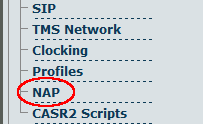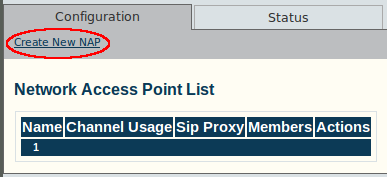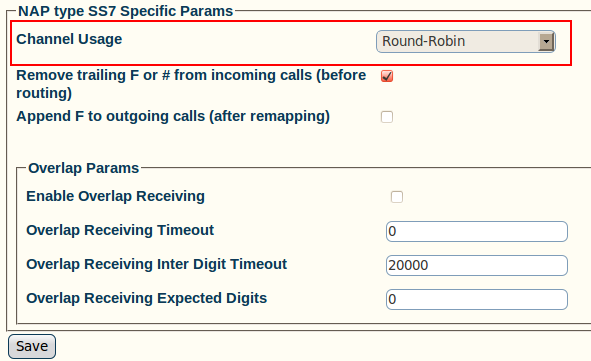Toolpack:Creating a NAP (ISUP) A
From TBwiki
(Difference between revisions)
| (5 intermediate revisions by 2 users not shown) | |||
| Line 1: | Line 1: | ||
=== '''''Applies to version(s): v2.5, v2.6.''''' === | === '''''Applies to version(s): v2.5, v2.6.''''' === | ||
| − | {{DISPLAYTITLE: | + | {{DISPLAYTITLE:Creating a NAP (ISUP)}} |
Now that you have created an ISUP CIC group, you must create a network access point, in order to finish configuring your system. A Network Access Point (NAP) represents the entry point to another network or destination peer. | Now that you have created an ISUP CIC group, you must create a network access point, in order to finish configuring your system. A Network Access Point (NAP) represents the entry point to another network or destination peer. | ||
Latest revision as of 09:38, 15 July 2013
Applies to version(s): v2.5, v2.6.
Now that you have created an ISUP CIC group, you must create a network access point, in order to finish configuring your system. A Network Access Point (NAP) represents the entry point to another network or destination peer.
To create a network access point (NAP):
1- Click NAP in the navigation panel
2- Click Create New NAP
3- Configure the new NAP:
- Enter a name for the NAP
- Select a user-created profile, if not, select default
- Click Create
4- Verify that the NAP was successfully created message appears
5- Associate an ISUP interface with the NAP:
- Select an interface (the newly-created ISUP CIC group)
- Click the "<<" button to add the interface to the list
The following screen is displayed:
- Select a value for Channel Usage, to avoid call collision
- Click Save
6- Verify that the "NAP was successfully updated" message appears




